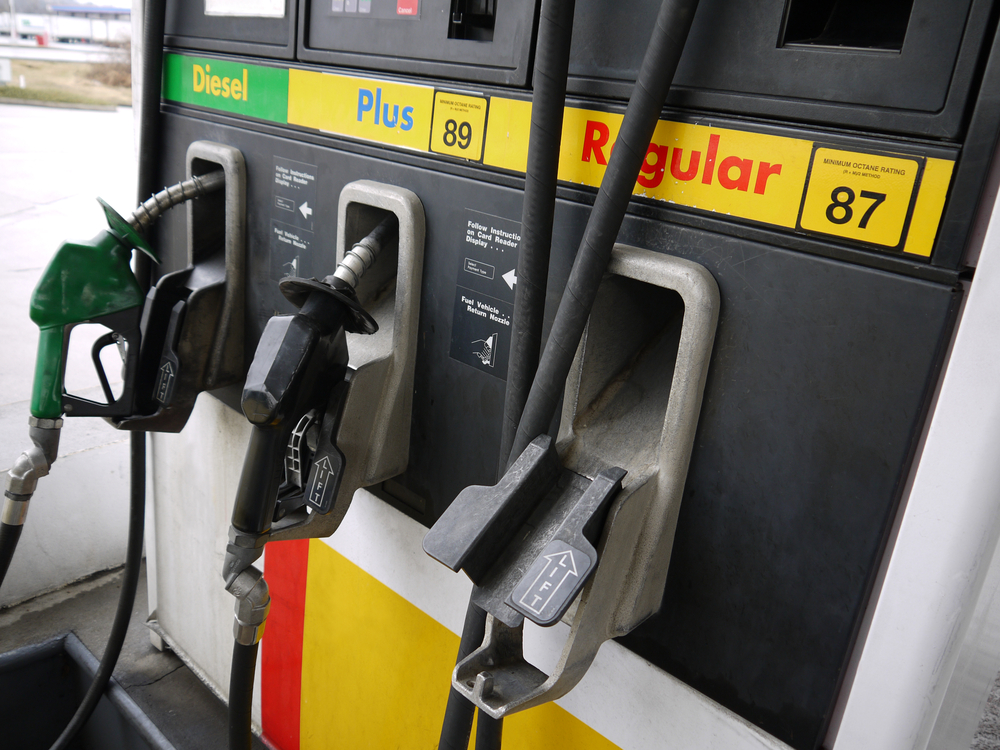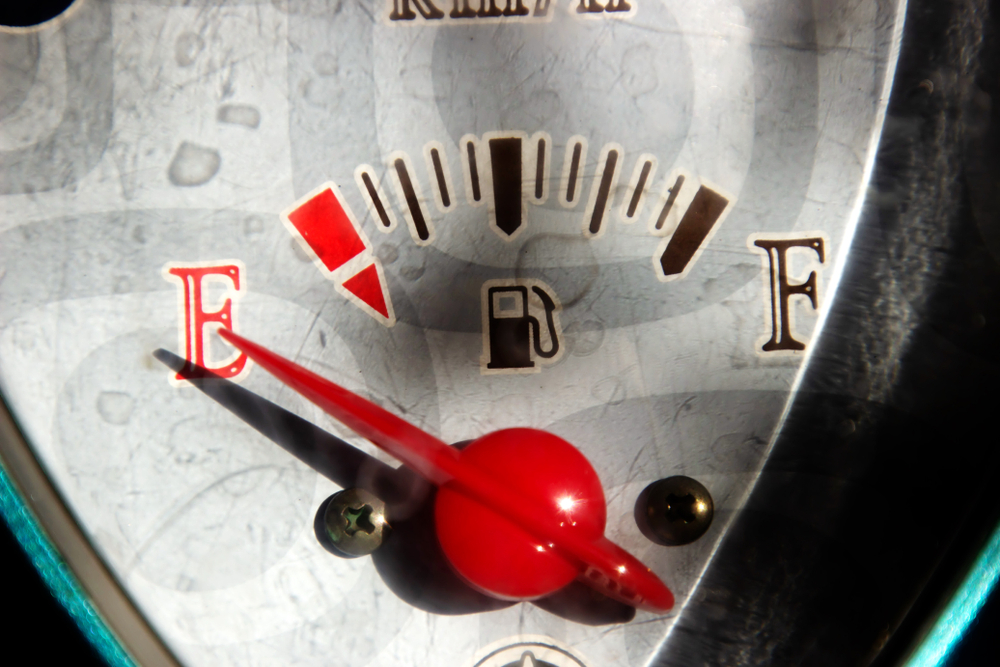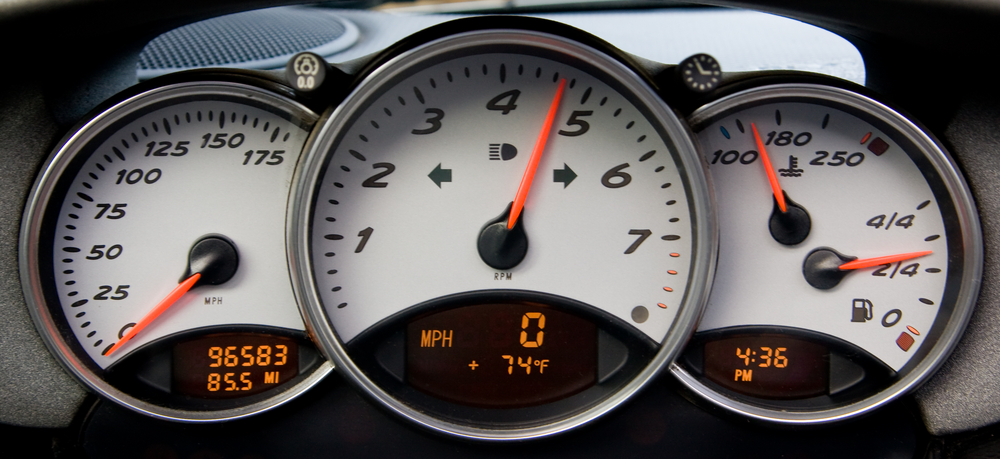
Let’s face it, you love driving your vehicle. But do not love the price at the pump when it’s time to fill up. When you take into account the difference in price among different gas grades and sometimes an additional difference in price depending on your payment method, filling your tank adds up pretty quickly. Gas prices are no laughing matter. So, does gas octane really matter? Or can you just fill up with the cheapest grade?
What’s the difference between the grades?
Generally speaking, there are 3 different grades of gasoline. However, between premium and mid-grade there is a slight difference. The premium will be a few octane points higher than the mid-grade, or regular gas. Regular is usually 87 octane, mid-grade is 89 and premium is 91-93. Those additional octane points will allow for a more efficient burn in the combustion chamber.

What does “octane rating” mean and how does it affect my vehicle.
The octane rating is a measure of how well the fuel will be able to resist engine knocking or pinging. This happens when the engine experiences combustion happening at the wrong time. Gas with a higher octane rating is designed to resist this knocking or pinging.
Your car may occasionally experience knocking or pinging, and this is fine. You do need to be aware if it happens constantly. If you notice knocking or pinging happening repeatedly no matter what grade of octane you are using, you need to get it checked out. This could mean your engine is having issues and it should be promptly addressed to avoid serious damage.
Does higher octane gas make a difference?
There is a misconception that premium gas, or higher octane, will clean your engine as it runs through it. This is not true. Due to EPA regulations, all gas grades contain cleaning additives. And the performance of your car, depends upon the quality of your engine.
It is always a good idea to use the gas grade that the manufacturer recommends for your vehicle. You can find this info in the driver’s manual or on a sticker on the door jamb.
So, what octane gas should I use?
Before choosing which grade of gas to use in your car, it is important to remember one thing: a higher octane gas does not necessarily mean a better/faster/cleaner ride. What you should do is read the manual for your car first, and get the manufacturer’s recommendation. If your vehicle does not specifically say to use premium gas, then you should be fine using regular octane. And this will save you money at the pump.
Is it worth buying higher octane gas?
Your vehicle’s driver manual should state if the car requires premium, recommends premium or if regular is fine to use. If the manual states that it is required, then you must use premium gas. This probably means that you are driving a high-end luxury car or sports vehicle. If the manual states that it is recommended, that gives you a little more leeway to try both premium and regular. If your car does fine with regular, and there are no knocks or pings, then you can safely use regular. Care today are designed so that the engine can self adjust the timing, so regular gas should not affect the engine’s combustion.
Premium gas can cost anywhere from 0.10 to 0.80 more per gallon, so if regular gas is ok, that is a better option.

Does higher octane gas last longer?
This is a myth. Higher octane gas may help a performance car with a large and powerful high performance engine, but for everyday driving there is no difference. Your car will get the same mileage regardless if you choose to use premium or regular octane fuel. Again, you really only need to use premium octane if the driver’s manual requires you too.
What happens if I put higher octane fuel in my car?
If you still feel that your car should be filled with higher octane fuel, that is your choice. Using a higher octane fuel will not make your car run faster, better, longer or cleaner. In fact, the only thing that will happen is that you will be paying more at the pump.
If the driver manual states that you need to use premium gas, then you must use it. In this case your most likely has a high performance engine or is an older model car. In this case, using a premium fuel will help prevent knocking in the engine. Using premium gas in a gar that requires it will allow you to optimize your car’s power.
And if you should choose to use regular fuel when premium fuel is recommended (but not required) your car will be ok, but you might notice that the fuel economy is slightly affected.

Are there any benefits of premium gas?
If your car does not require higher octane fuel, you should not use it in your car. First of all, higher octane does not mean your car will run faster. In fact, higher octane fuel has less energy that regular fuel. Since higher octane fuel is designed for high performance engines, the fuel needs to be able to be compressed more. So, using higher octane fuel in an engine designed for regular fuel can actually result in a slower response time in the engine.
Some drivers will also premium fuel in their car instead of regular, because they feel it helps with preventing the engine from knocking. In some cases, your engine might knock on occasion. It is possible to have an occasional mis-fire. However, if you are using premium gas to avoid the engine from knocking, then it is possible that you are only masking a bigger problem with your engine. If this is the case, you need to bring your car in to a professional mechanic ASAP. Severe and prolonged engine issues can be fatal for your vehicle.
Does gas type matter?
Yes, gas octane does really matter. Even though there are only a few points of difference between the different grades of fuel, using the wrong type can have a big impact on your car. If you have a high performance engine and need to use premium, then you should. Likewise, if your car can use regular, then you should use regular. Using the wrong grade of fuel can affect your car’s fuel economy, mask an underlying problem in your engine and possibly damage your engine
Conclusion
Drivers today can choose the gas that best fits their car with confidence. Dues to strict laws and EPA regulations, all gas grades will be the same. You can purchase gas at a cheap station, or a more expensive name brand station and it won’t mean there is a difference in the quality of gas. All gas will also have cleaning additives too, so that all different grades will help keep your engine clean.
You simply have to check your owner’s manual to see if a specific gas grade is required or simply recommended. From there you are only limited by your wallet.
